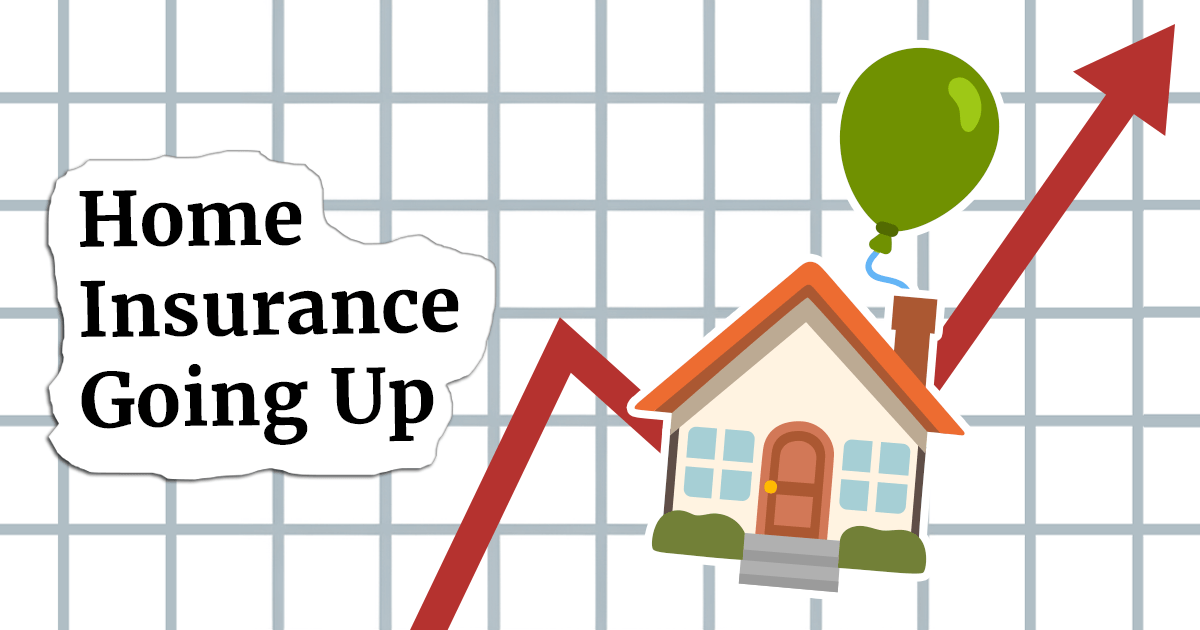Home insurance premiums have been rising in recent years, but 2023/24 has seen some of the biggest increases yet. Whilst not quite at the level we’ve seen with car insurance, it’s safe to say things are going up at unprecedented levels.
As brokers, we’re doing everything in our power to minimise the impact of this on our customers by shopping around and negotiating deals for them.
We’re not alone…
The industry as a whole is experiencing these challenges. According to data from Consumer Intelligence, premiums (which look at quotes from some of the largest insurers and comparison sites) show premiums have surged 40.6% on average in the 12 months to January 2023.
Other property policies are also impacted, whether its Landlords Insurance, Commercial Property or High Net Worth Insurance.
In this blog, we’ll be going over some of the factors responsible for the higher premiums that many of you will face with your home insurance.
Increase in claims and costs
The number and cost of home insurance claims have increased in recent years. During the COVID-19 pandemic, there was a decrease in some claims such as theft because homes were occupied, meanwhile others increased.
Now life has returned to normal there is an upward trend in claims. These are caused by multiple factors, which we’ll explain here.
Cost of materials and labour
The cost of building materials and labour have increased sharply in the last couple of years, due to several factors, including:
- Supply chain issues. The COVID-19 pandemic disrupted global supply chains, making it more difficult and expensive to obtain building materials. This created a backlog for housing projects, materials and repairs.
- Increased demand for building materials and shorter supply have led to a major increase in prices.
- There is a labour shortage of skilled workers in the construction industry. This means facing a shortage of skilled workers, which is driving up wages and costs.
There are many more factors in the supply chain including conflicts, HGV driver shortages, and the cost of energy – all compounding to raise costs even further.
Severe weather
Severe weather events, such as storms and floods are becoming more common, leading to an increase in claims. In addition, there has been an increase in the number of ‘escape of water’ and burst pipe claims, which often occur in freezing weather.
The resultant damage has caused billions of pounds worth of damage to homes and led to an increase in home insurance claims.
It’s not just winter weather either, subsidence payouts were reportedly up 21% as a result of the record-breaking summer heatwave.
Inflation impact
Record inflation has resulted in increases across the board, causing insurance premiums to also increase.
Given all of these factors, we’d highly suggest reviewing your level of cover to make sure it is still appropriate. To find out more, read our blog below.
Insurers are faced with the challenge of balancing their books amidst mounting claims, which means they need to keep premiums at an appropriate level.
These cost factors influence the workings of home insurance. Understanding how home insurance works can help you navigate through these rising premiums.
The end of dual pricing
In January 2022, the Financial Conduct Authority (FCA) stopped insurers from offering new customers lower prices than existing customers for the same cover. This was designed to stop some providers from taking advantage of loyal customers through significant increases at renewal, but has meant that those who shop around won’t always find the dirt-cheap deals they were used to.
How home insurance works?
Home insurance is a contract between you and an insurance company that covers you for agreed events. It can cover buildings and contents – together or as a standalone policy. Premiums are calculated based on the risk presented, but any increase can be felt by everyone as insurers try to ensure they have enough money to cover claims and make a profit.
What can you do?
- Make sure that you are not underinsured, rebuild costs have risen substantially due to the factors listed above.
- Consider raising your voluntary excess for a cheaper premium.
- Avoid overpaying for insurance, and use a broker. Using a single insurance company can be more costly and limits your options.
- You may not need your insurance with your bank as part of your mortgage. Over the years, we’ve saved many of our customers money when they’ve switched from a bank.
By choosing the right insurance broker, we can help simplify things and be there by your side when you need advice on a change or support on a claim.
Warning
The risk of underinsurance is real. If you start cutting corners with your cover, you could end up out of pocket. You are responsible for providing an accurate presentation of your risk, including claims history, contents and building sums insured, history of the property and more.
Any failure could result in cancellation or a voided policy.
What are we doing?
To keep our prices competitive, we’re doing what we’ve always done. We’re shopping around on behalf of our customers to keep prices down without compromising on the quality of the cover.
As a customer, if your existing insurer is not competitive, we’ll provide you with another option from a different provider.
In our opinion, great brokers are even more valuable in difficult times. As the industry grapples with lengthy claims and many more issues – we’ll be at your side every step of the way…
Contact us today for a free home insurance quote. if you’re interested in trying a broker, give our friendly team a try. Call us on 01527 874092, email info@jukesinsurance.co.uk or fill in the form below and we’ll be in touch.
Get in touch if you have any concerns about an upcoming policy. If you’re planning on making any changes or additions to your policy, let us know as soon as possible. call us on 01527 874092, email info@jukesinsurance.co.uk or fill in the form below and we’ll get back to you.





